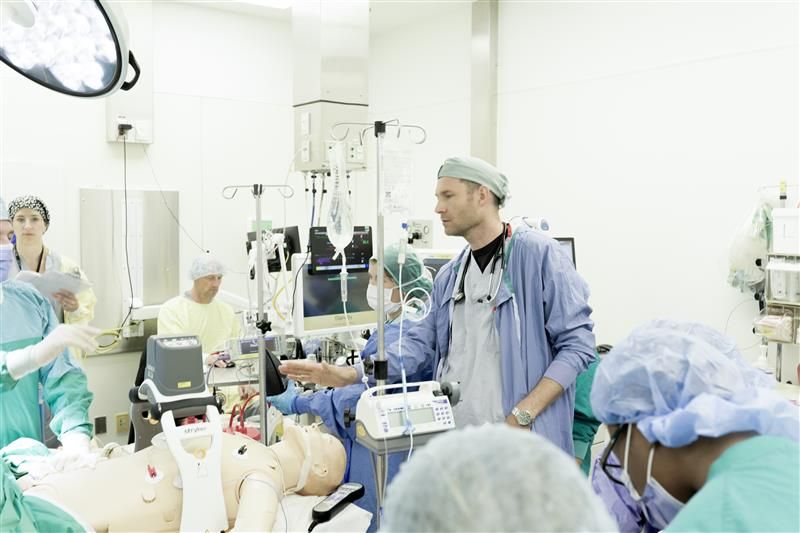
The Rural Mobile Simulation: Transforming Care in Alberta’s Rural Communities

In a medical emergency, healthcare teams need to respond with skill, confidence, and coordination.
But what if access to hands-on training is limited, especially in rural communities?
This is the reality for many rural healthcare teams across Alberta. In small, remote communities, providers often care for patients with complex needs while juggling limited resources, broad scopes of practice, and minimal access to hands-on emergency training. When rare but critical situations like severe bleeding, pediatric trauma, or severe mental health episodes arise, preparedness can mean the difference between life and death.

That’s where the Rural Mobile Simulation Project comes in.
An innovative initiative by Covenant Health and funded by Covenant Foundation, the project delivers advanced simulation training directly to rural acute and continuing care sites across the province. Using lifelike mannequins and real clinical scenarios, teams practice their responses to high-stakes events in the exact environment where they will need to act.
“It’s about readiness,” says Norbert Werner, rural simulation lead. “Simulation lets teams sharpen their skills, reflect on their decisions, and work through emergencies together, in a safe, supportive environment.”
Simulation-based learning is more than a technical upgrade. It builds confidence, fosters teamwork, and helps providers prepare for situations they may rarely encounter but must handle flawlessly. These training sessions often reveal workflow gaps, strengthen communication, and help teams see their roles with fresh clarity.
One care team, after practicing a critical bleeding emergency scenario, faced a similar real-life emergency just a week later. They responded with confidence and coordination, and the patient did well.
“We were more ready because of the simulation,” one team member shared.
At St. Joseph’s Home in Medicine Hat, the experience was just as remarkable. For Registered Nurse Marcella Bachmeier, the training felt real – so real that it stirred instinctive emotion.
“I almost forgot it was just a simulation – I ended up comforting the mannequin and holding its hand!”, Marcella recalls.
That level of realism helped them react the way they would in a real emergency. “It showed us how much we rely on each other, and how much we can grow as a team when we train together,” Marcella adds.
Beyond clinical skills, the mobile unit nurtures a deeper culture of safety and collaboration. It enables interprofessional teams to train together, supports health worker retention in rural areas, and even opens the door to training family caregivers and community responders.
“Simulation is the way of the future,” Norbert adds. “And thanks to this project, rural Alberta isn’t being left behind – it’s leading the way in building smarter, stronger, and more connected healthcare teams.”
Written By: Carmel David, Direct Marketing Lead - Covenant Foundation